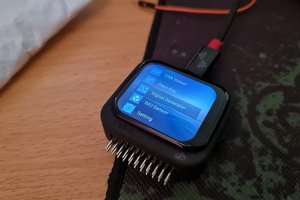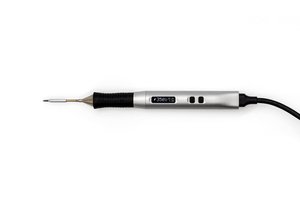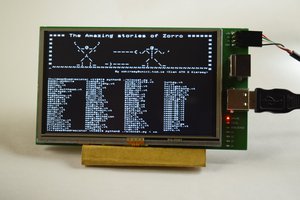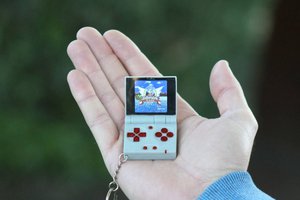What is this project about?
MEGO is a rechargeable breadboard power supply designed for makers and hobbyists. It delivers an adjustable DC output voltage of 4-24V, a 5V USB port, and features a compact, breadboard-compatible design. Powered by the RP2040 microcontroller, it offers programmability, making it versatile for various projects.

Filming of the MEGO2.0
This video is filmed on the original MEGO1.0 version. We don't have a film for MEGO2.0 yet.
Why did we decide to make it?
This project is the second iteration, building on the success of the original MEGO, launched in 2018. The first version quickly gained popularity among makers, students, and electronics enthusiasts due to its convenience in powering breadboard circuits for quick setups, without the need for a designated lab.

The original version of MEGO launched in 2018
Its portability made it ideal for on-the-go projects, and many local schools adopted it for their electronics and robotics classes. MEGO 2.0 continues this legacy with added programmability, versatility, and an open-source design, offering even more flexibility for users.

As a new iteration, we aimed to enhance its functionality by adding programmability, portability, and an open-source design. We also addressed small hardware bugs and upgraded from MicroUSB to USB-C for improved compatibility. As one of the most important component in our Lab-On-The-Go electronics lab kit, MEGO 2.0 offers a quick, neat, and accessible solution for powering circuits, allowing circuit lovers to play anytime and anywhere.

The Lab-On-The-Go electronics laborartory hardware kit
How does it work?
MEGO 2.0 uses a built-in 2000 mAh lithium-polymer battery for portability and connects directly to a breadboard. The RP2040 microcontroller enables user programmability, allowing customization. It includes short-circuit protection and precise voltage regulation, ensuring safe and reliable operation for your electronics experiments.
- MEGO 2.0 powering a breadboard circuit.
- Voltage adjustment demonstration.
- A breakdown of its compact design and components.
- Outdoor use highlighting its portability.
Here are the specifications of the product



Open Sourced Material
We’ve embraced open-source principles to give makers and hobbyists the flexibility to modify, customize, and expand MEGO 2.0 for their unique needs. We chose the RP2040 microcontroller considering its accesibility and user friendly even for beginnering embedded programmers. All schematics, code, and documentation are available for viewing and download, available at our support page:
https://support.eimtechnology.com/documentation/mego-2.0
A Brief Story of Our Development Roadmap
The initial version of MEGO was launched on Kickstarter (the link) in 2019. The prototype we got for filming was kind of a lousy 3D printed version with plastic stickers version of silkscreen. That was also the first product our startup launched, during the moment while I was still doing my graduate school. If we failed, as we agreed, would dismiss.
Fortunately, the campaign succeeded, thanks to the early backers who would like to support innovations. With some initial funds for production, and short after receiving some pre-orders from schools and institutions, we got initial momentum to take the business seriously and commit to growing it further.

We even hand-made hundreds of pieces units to fulfill the early orders; There were many 'nasty' yet still 'thrilling' nights we worked in the garage and lab for our initial dream
Thanks god and people we did not even know how we survived for the pendemic, but we did, and the company has moving to a next milestone to develop Technology Educational product solutions for teens and adults interested in electronics, hardware and tangible projects. As the infrastructure to support our ambitious plan to build an entire tangible curriculum for electronics engineering, we implemented a...
Read more » Daniel Cao
Daniel Cao
 Chu Tien Thinh (obitvn)
Chu Tien Thinh (obitvn)
 Nicolas Schurando
Nicolas Schurando
 Kuldeep Singh Dhaka
Kuldeep Singh Dhaka
 c.Invent
c.Invent